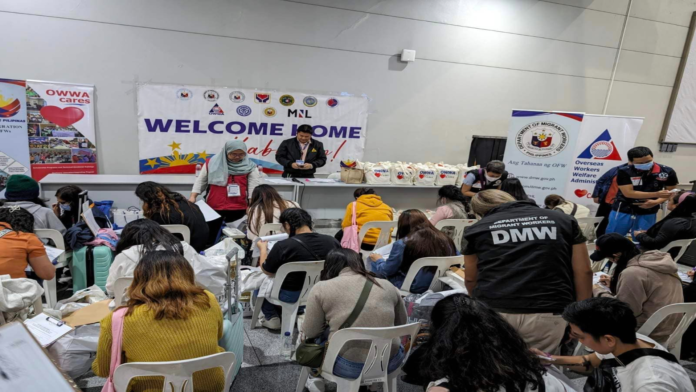A leader of the House of Representatives believes that opening up the Philippine economy to more foreign investments will gradually reduce Filipinos’ dependence on overseas employment.
This was the stance of House Deputy Majority Leader Janette Garin during the deliberations of the House Committee of the Whole on Resolution of Both Houses (RBH) No. 7, which proposes amendments to certain economic provisions in the 1987 Constitution by inserting the phrase “unless otherwise provided by law.”
Garin said broader opportunities within the country would emerge once the restrictive economic provisions in the Charter are amended, noting that Filipinos would no longer need to seek employment abroad.
“Doesn’t RBH 7 imply that the Philippines will be opened up so that companies can afford higher salaries, leading to a better life for every Filipino family?” Garin said.
One of the key proposed economic reforms aims to reassess the 60-40 equity rule on foreign ownership, which has long been identified as a significant barrier to substantial increases in foreign direct investment and impeding the country’s economic growth trajectory.
Garin also pointed out that Filipinos seek employment abroad due to the lack of high-quality and well-paying job opportunities in the country, despite being separated from their families.
“Masakit mang sabihin, napakaraming Pilipino ang nasa Vietnam na dati rati dito ay sila ay mga managers and some of them are even company owners pero hindi nila kaya ang malaking kapital. Sila ay kinukuha at pina-pirate ng mga dahuyang kompanya at napipilitan silang umalis ng ating bansa para paglingkuran ang bansang hindi nila kinagisnan (It’s painful to admit but many Filipinos, who used to be managers and even company owners but couldn’t afford a huge capital, are now in Vietnam. They are lured and pirated by foreign companies and forced to serve a country that they are unfamiliar with),” she said.
She cited Philippine Statistics Authority (PSA) data showing that an estimated 1.96 million Filipinos worked abroad from April to September 2022.
She pointed out that this marked a 7.6 percent increase from the 1.83 million overseas Filipino workers (OFWs) in the same period in 2021.
Garin said medical professionals choose to work outside the Philippines due to the lack of opportunities in the medical industry that are on par with those abroad.
“If we open up opportunities, even for research and other fields, wouldn’t our talented scientists, engineers, and professionals return to work in the Philippines?” she said. (PNA)
Photo credit: Facebook/dmw.gov.ph


